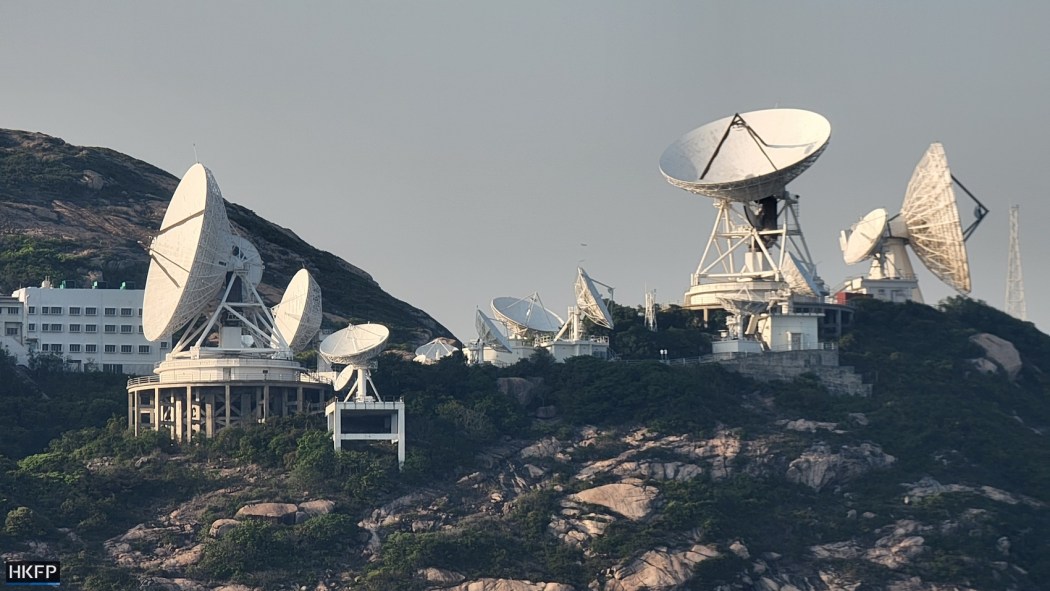The scant importance the government attaches to public relations and public communication, and its lack of competence in this area, could not have been made more clear than by the way the position of the director of the Information Services Department (ISD) has not been filled since last December.

This is a senior government position with a maximum monthly salary of HK$273,000. The last person in the permanent role, senior civil servant at “administrative officer staff grade A” level Rex Chang, stepped down on December 4, 2021, citing health reasons. Yet, 18 days later, he was reincarnated as Commissioner for Belt and Road. There was no more mention of his health. One can only assume that he recovered quickly.
Chang was the ninth administrative officer (AO) appointed to lead the ISD, since Irene Yau retired in 1997 after a 10-year stint. Yau was the last information officer (IO) to rise through the ranks to become head of the department.
What does the continuous posting of AOs to head up the ISD tell you about the government’s view of the department? Either the government does not think the ISD is capable of bringing up suitable leaders from its professional IO grade, or the position is regarded as so sensitive and demanding that it needs to be filled by more politically savvy AOs. Whichever, the government’s inability to fill the vacancy after more than five months signals a worrying lack of PR expertise within the government.

The ISD has an estimated budget of HK$694.1 million for 2022-23. Its work comprises five programme areas: public relations outside Hong Kong, local public relations and public information, public opinion, civic responsibility, and publishing.
The first programme area, with a financial allocation of HK$196.7 million, is charged with handling Hong Kong’s public relations and publicity programmes overseas and in mainland China. After being bashed in Western media since Beijing took decisive measures to restore national security and political order, Hong Kong’s image overseas has been shattered by continuous negative portrayals. There is a dire need to repair and refurbish Hong Kong’s image overseas.
Yet the only senior expatriate officer in ISD, former deputy director Bret Free, has retired. ISD is thus left without any overseas media point person who can keep in touch with the foreign media, and give advice on how to fine-tune the government’s official lines to make them more acceptable to the foreign media.
With a budget of HK$275.6 million, the programme that focuses on local public relations is the biggest spender. ISD staff cannot be faulted for not working hard enough. But there is clearly a lack of a senior media officer with sufficient political clout in the upper echelon of government who can give advice on how to get the government’s messages right.
An obvious example is the government’s anti-epidemic campaign. After an initial flurry of post-vaccination deaths and other adverse cases in early 2021, fears about fatalities and other ailments associated with vaccination suppressed public interest in receiving the Covid-19 jab, especially among the elderly, until the fifth wave broke out. The government relies on press releases, such as its regular “Update on vaccine monitoring,” to quell fears. Yet such press releases are so laden with technical details that the key messages are lost on the general public.

Take the update issued on May 11. The three key messages are that reports of adverse events constituted only 0.05 per cent of the total vaccine doses administered; deaths reported within 14 days after vaccination amounted to only 0.0006 per cent of the doses administered; and none of the deaths were associated with vaccination. These updates are supposed to be science-based and reassuring, but how many are aware of them?
Another problem with the anti-epidemic campaign is the curious phenomenon of too many experts speaking on vaccination and other Covid-related issues in conflicting ways. The end result is a cacophony of frequently confusing messages, drowning out the voices of top government health officials who should be relied on as the most authoritative source of advice.
The third ISD programme area, charged with monitoring public opinion and allocated HK$31.4 million, is an area where expenditure can be substantially slashed. It is surprising to note that IOs are still being deployed to compile newspaper clippings and circulate to senior officials on a daily basis an Overseas Media Summary, Mainland Media Summary, Overseas Magazine Round-up, Selected Newspaper Summary, and so on. Such work should be contracted out and done by artificial intelligence.

Information Officers should no longer be asked to get up at 5 a.m. to scan media reports, “brief” their bosses verbally and circulate such summaries. The Legislative Council years ago contracted out the task of compiling media summaries. That the ISD still operates in this outdated, manual fashion is shocking.
It is not clear how many staff are employed on such duties. It would be much cheaper to contract out such work and the bulk of these posts can be deleted, leaving just a few to do transcripts of speeches and public statements by senior officials and translation.
The fourth area of focus under the ISD, entitled civic responsibility, is actually concerned with running the government’s publicity campaigns, such as the campaign on the consumption voucher scheme and elections under the the “improved electoral system.” Again, the secretary for home affairs, who oversees the work of the ISD, should review critically to what extent more contracting out should be done to make such campaigns more impactful.

In sum, the ISD operates in an obsolescing mode. More attention should be paid to speech-writing, both in English and Chinese; sending more effective rejoinders to overseas media criticisms and more engagement of overseas journalists; more emphasis on messages rather than details; and more comprehensive monitoring of talking points in social media.
Above all, senior officials must be more willing to engage local, overseas or mainland media representatives in person, rather than as bloggers. In theory, the director of the ISD is the government’s chief public relations strategist and publicist, but a true expert in this area has been missing in action for too long.
Support HKFP | Policies & Ethics | Error/typo? | Contact Us | Newsletter | Transparency & Annual Report | Apps
| HKFP is an impartial platform & does not necessarily share the views of opinion writers or advertisers. HKFP presents a diversity of views & regularly invites figures across the political spectrum to write for us. Press freedom is guaranteed under the Basic Law, security law, Bill of Rights and Chinese constitution. Opinion pieces aim to point out errors or defects in the government, law or policies, or aim to suggest ideas or alterations via legal means without an intention of hatred, discontent or hostility against the authorities or other communities. |
Help safeguard press freedom & keep HKFP free for all readers by supporting our team

More HKFP OPINION:
HKFP has an impartial stance, transparent funding, and balanced coverage guided by an Ethics Code and Corrections Policy.
Support press freedom & help us surpass 1,000 monthly Patrons: 100% independent, governed by an ethics code & not-for-profit.










